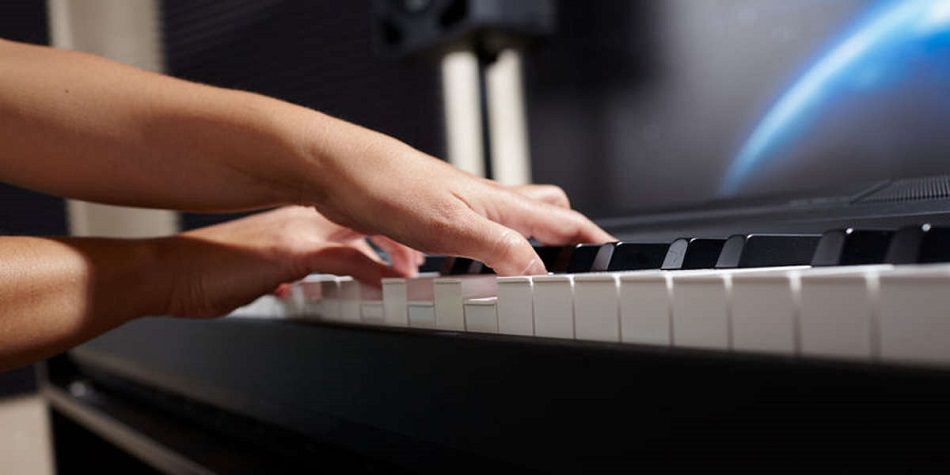Behind The Scenes
How To Play Piano Like A Pro
Learn To Play By Ear
It is easier to improve your technique by employing ear training or choosing to listen to professionals play. Playing music by ear is fantastic practice for novice musicians as it allows for improvisation and helps you develop your own unique style and technique.
Glide Over Keys
Amateur pianists often make the mistake of hitting piano keys versus allowing their fingers to glide over them gracefully. This is often a telltale sign of a novice player as the sounds become harsh and discordant to listeners. Relax your hand and allow it to flex over the keys and work at a faster pace.
Learn Proper Rhythm
Without tempo and rhythm, every piece you play on the piano will sound amateurish. Regardless of how skilled you are or unskilled with piano chords, learn a song’s rhythm before anything else. Ensuring that your rhythm is upbeat and steady can cover up mistakes you make while playing.
Use Separate Hands
The ultimate goal for a piano player is to employ the use of both hands flawlessly, however, as a beginner, use separate hand movements. Not only is it easier to start with your right hand, but it will help you gradually ease into playing with both hands. Teachers will often resort to this method and allow their pupils to progress to two-handed playing as they get better. Over time, you will recognize that this practice allows for better efficiency and coordination.
Memorize Your Music
It is not an easy task for a beginner to memorize music, but it can help make your playing more fluid. Memorize the notes and chord structures by splitting your sheet music into different sections. Learn each section independently, and try playing before bedtime. Late night playing enhances your awareness of the piece and allows you to drift off to sleep thinking about the music.
Don’t Focus On Speed
Speed playing requires many years of practice, and you’re just not there yet. Focus on playing a piece over and over again accurately versus considering how quickly you can get through it. Speed comes after you learn accuracy and efficiency.
Play Sections Independently
It is important not to overwhelm yourself with a score, therefore, play different sections of the music independently. For example, practice the notes that are quarter notes and as you get better, progress to playing eighths and sixteenths. Make sure you try to finish each section with continuity, as in finish it in the following section like an endless loop.
Learn Sight Reading
It is easy to feel overwhelmed by the notes on paper, so learning the sight reading technique can help you become better and keep your sanity in check. Sight reading can help you anticipate upcoming notes and allow you to prepare for them before needing to play them.
Keep Practicing
Everyone has heard the term that practice makes perfect, and with playing the piano, this is doubly true. Read these playground sessions review. Always start your practice session with a warm up just playing notes for about 15 minutes. After warming up, you can ease your way into playing music. Spending some time every practice session on fundamentals will help you become a better player over time.
FOR MORE NEWS AND ARTICLES, CONNECT WITH US ON MUZIQUE MAGAZINE, FACEBOOK, INSTAGRAM, AND TWITTER
FOR MORE NEWS AND ARTICLES, CONNECT WITH US ON VAULT MIAMI, FACEBOOK, INSTAGRAM, AND TWITTER

























